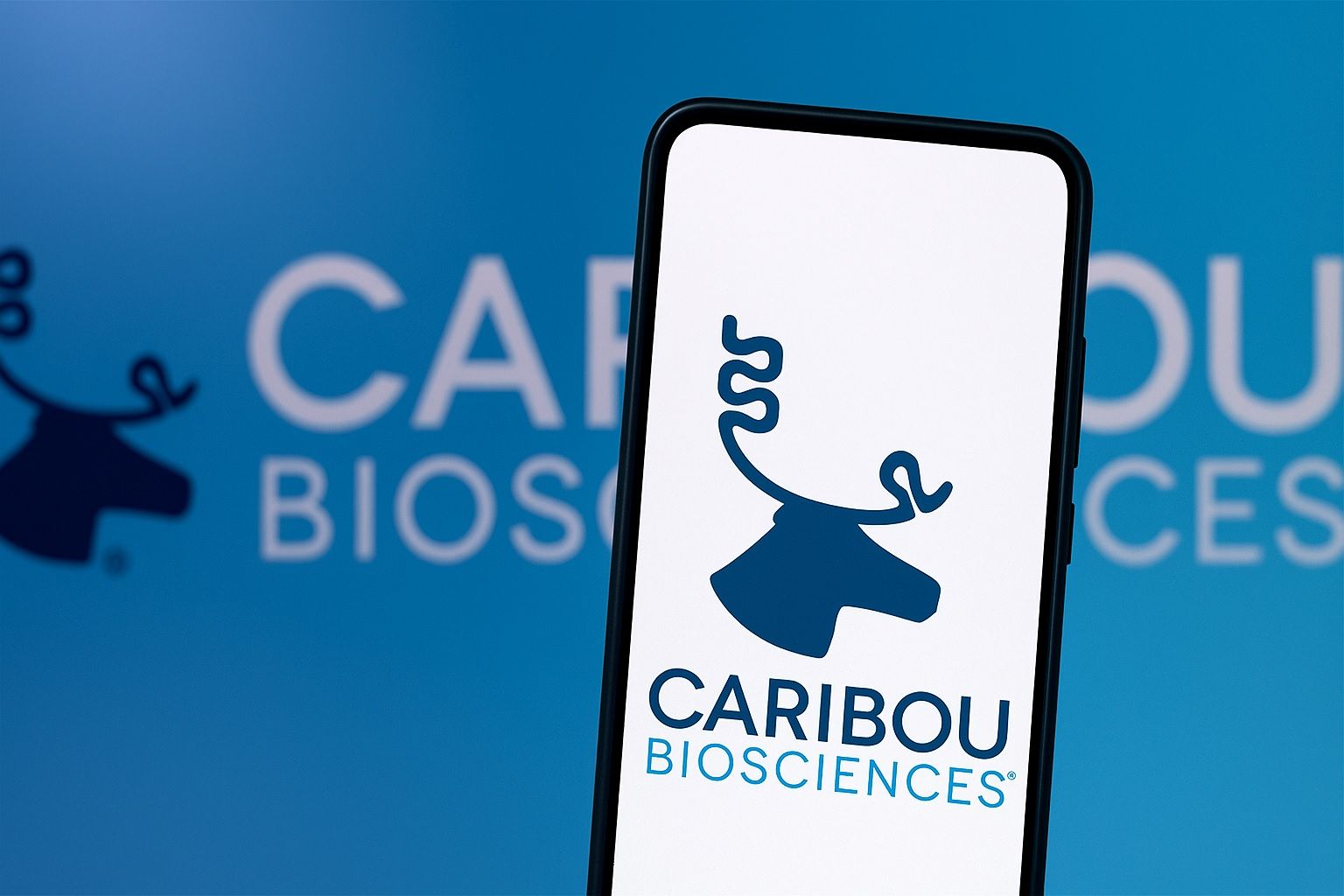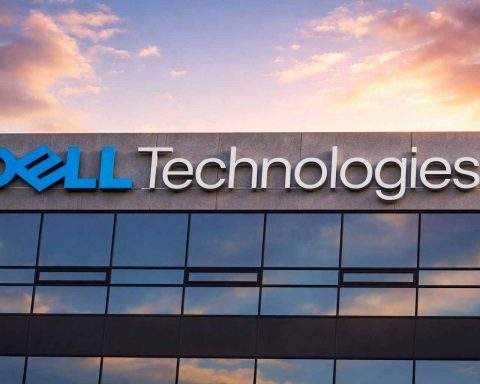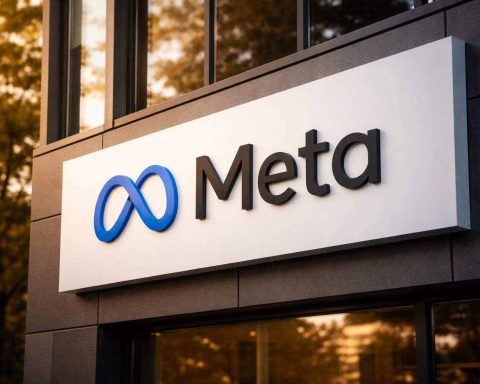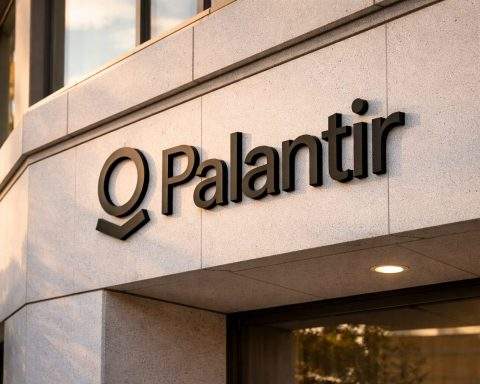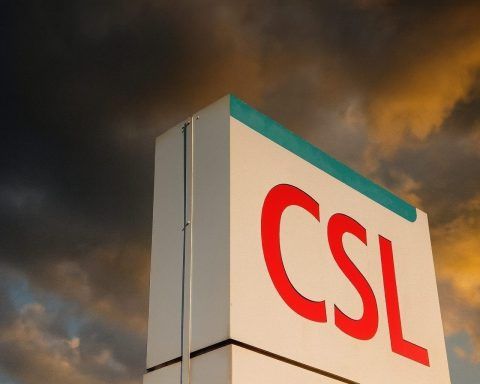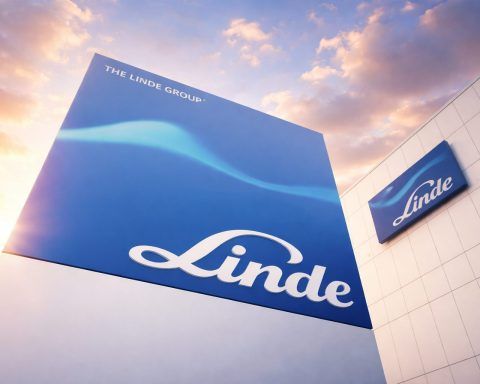- Major Efficacy Milestone: Caribou Biosciences announced promising early results for its “off-the-shelf” CAR-T therapies. In a lymphoma trial, vispacabtagene regedleucel (a.k.a. vispa-cel, formerly CB-010) induced a 64% complete remission rate and 82% overall response rate, with 51% of patients still cancer-free after one yearstatnews.com. These outcomes match benchmarks of existing personalized CAR-T treatmentsstatnews.com, marking a potential breakthrough in allogeneic (donor-derived) cell therapy.
- Multiple Myeloma Success: In a parallel multiple myeloma trial (CaMMouflage Phase 1), Caribou’s CB-011 therapy showed a 92% overall response rate and 75% complete response/stringent response rate among heavily pre-treated patientsinvesting.cominvesting.com. Notably, 91% achieved MRD-negativity (no minimal residual disease)investing.com, and many patients maintained deep remissions beyond 6 months on a single doseinvesting.com. No graft-vs-host disease was seen, though one treatment-related fatal toxicity occurredinvesting.com – overall a “manageable” safety profile, according to the company.
- Expert Optimism on Accessibility: These off-the-shelf CAR-T therapies are manufactured from healthy donor cells and stored for on-demand use, bypassing the lengthy, individualized manufacturing of conventional CAR-T. “We are very encouraged by the compelling results… delivering deep, durable responses in high-risk, heavily pretreated patients with a manageable safety profile,” said Rachel Haurwitz, Caribou’s CEOinvesting.com. Clinical investigators note the potential impact: currently only ~10% of eligible multiple myeloma patients receive autologous (personalized) CAR-T therapy, due to production limitsinvesting.com – so an off-the-shelf product could dramatically broaden access for cancer patients.
- Stock Doubles on News: Investors responded emphatically. Caribou’s stock (NASDAQ: CRBU) surged over 100% after the Nov. 3 data announcementinvesting.com, jumping from ~$2.42 to around $5+ per sharenasdaq.com. The rally reflects optimism that Caribou’s approach might overcome past setbacks in allogeneic CAR-T development. The company now plans a pivotal Phase 3 trial of vispa-cel in lymphoma and will expand the CB-011 myeloma trial by end of 2025tipranks.cominvesting.com. Analysts are cautiously optimistic – noting the breakthrough potential but also the early-stage financial reality (no approved products yet and ongoing losses)tipranks.com.
- CRISPR Pedigree & Innovation:Caribou Biosciences, co-founded by CRISPR pioneer Jennifer Doudna, built its therapies on advanced gene-editing techbloodcancerunited.org. The company’s proprietary CRISPR Cas12a chRDNA platform (“chardonnay” guides) enables ultra-precise genetic tweaks – e.g. PD-1 gene knockout in CAR-T cells to prevent exhaustion, and immune cloaking via B2M/HLA-E edits – to make donor-derived T cells more potent and longer-livedinvestingnews.cominvestingnews.com. This innovative approach has now delivered tangible results, heralded by experts as a potential “off-the-shelf CAR-T” turning point after years of challengesstatnews.com.
Caribou’s Game-Changing CAR-T Results
Caribou Biosciences – a clinical-stage biotech focusing on genome-edited cell therapies – stunned the biotech world with new data on November 3, 2025, showcasing that its off-the-shelf CAR-T cell treatments can achieve remission rates on par with personalized CAR-T therapiesstatnews.com. In an early-morning webcast, Caribou revealed Phase 1 trial outcomes from two programs: vispa-cel for B-cell lymphoma and CB-011 for multiple myelomatipranks.com. The headline: patients with aggressive blood cancers, who had exhausted other options, responded remarkably well to these donor-derived CAR-T infusions. Caribou reported multiple complete and durable remissions in both trials, exceeding what many thought possible for an “off-the-shelf” approachstatnews.com.
These results are especially noteworthy because allogeneic (donor-derived) CAR-T therapies have long been a “holy grail” in oncology. Unlike standard CAR-T treatments (which require harvesting a patient’s own T cells and manufacturing a custom therapy over several weeks), Caribou’s therapies are made in advance from healthy donors and can be delivered to any patient on demand. “Caribou’s vespa-cel CAR-T therapy can be made more quickly, stored, and then given to patients on demand,” noted STAT News, highlighting the speed and convenience advantage of this modelstatnews.com. If successful, off-the-shelf CAR-Ts could democratize access to life-saving cell therapy, allowing many more patients to be treated rapidly – a stark contrast to today’s situation where only a small fraction get bespoke CAR-T due to production bottlenecksinvesting.com.
Off-the-Shelf vs. Autologous CAR-T: Why It Matters
Traditional CAR-T cell therapies (like Yescarta or Abecma) are “autologous,” meaning they use the patient’s own immune cells. While often effective, autologous CAR-T has downsides: manufacturing each dose is slow (weeks), expensive, and not every patient can wait that long for treatment. In fact, logistical hurdles and strict criteria mean most eligible patients never receive CAR-T at allinvesting.com. By contrast, off-the-shelf CAR-T uses T cells from a donor, gene-edited to attack cancer and to avoid rejection by the patient’s immune system. These can be produced in batches, cryopreserved, and ready to infuse immediately when needed.
Caribou’s approach aims to solve two historical challenges with allogeneic CAR-T: immune rejection (the patient’s body attacking the foreign cells) and T-cell exhaustion (engineered cells losing steam too quickly). To tackle the first, CB-011 is designed with an “immune cloaking” strategy – knocking out the B2M gene and adding an HLA-E fusion protein so the donor T cells hide from the host’s immune surveillanceinvestingnews.com. To address the second, vispa-cel (CB-010) incorporates a PD-1 gene knockout, removing an inhibitory switch that can cause CAR-T cells to shut down earlyinvestingnews.com. These genetic enhancements, made possible by Caribou’s proprietary CRISPR chRDNA platform, create “armored” CAR-T cells that potentially persist longer and hit tumors harderinvestingnews.cominvestingnews.com.
The new data suggest Caribou’s enhancements are paying off. “Complete and durable remissions” were observed in the lymphoma trial, reaching comparable efficacy to autologous CAR-T therapiesstatnews.com. This is a watershed moment – industry observers note that off-the-shelf CAR-T efforts by others had seen setbacks (from limited efficacy to safety holds), making these positive results especially significantstatnews.com. In practical terms, if an off-the-shelf product can truly rival patient-specific therapy, it could “push the field forward after years of setbacks and broaden access” to CAR-T for more patientsstatnews.com.
Breakthrough Lymphoma Trial Results (ANTLER Phase 1)
Caribou’s lead candidate vispacabtagene regedleucel (“vispa-cel”) is an allogeneic anti-CD19 CAR-T therapy for relapsed or refractory B-cell non-Hodgkin lymphoma. On Nov. 3, the company unveiled updated Phase 1 ANTLER trial data in a cohort of 22 lymphoma patients (largely second-line large B-cell lymphoma)sec.govsec.gov. Each patient received a single infusion of vispa-cel, using a partially HLA-matched healthy donor’s T cells, after standard chemo pre-conditioningsec.gov.
The results were striking for a tough patient population: an 82% overall response rate and 64% complete response (CR) ratesec.gov. In other words, 18 of 22 patients saw their tumors shrink or disappear, and 14 patients had no detectable lymphoma after treatmentsec.gov. Equally important, responses have been lasting – 51% of those patients remained progression-free at 12 months post-treatmentsec.gov. Many responders are still being followed in remission, and the median duration of complete responses wasn’t reached at the data cut-off (meaning over half of the complete responders were still in remission)sec.gov.
Safety in the ANTLER trial appears favorable relative to traditional CAR-T. No cases of graft-versus-host disease (a common concern when using donor cells) were observedsec.gov. Severe cytokine release syndrome and neurotoxicities were infrequent (under 5% had high-grade CRS; no high-grade ICANS brain toxicity in the main cohorts)sec.gov. The most common side effects were blood count drops (e.g. low platelets in 62% of patients) and mild to moderate cytokine release fever, which are expected and manageable in CAR-T therapysec.gov. One notable serious event was reported: a grade 5 immune effector cell-associated hemophagocytic syndrome (IEC-HS) – a rare inflammatory complication – leading to a patient’s death about 25 days after infusionsec.gov. While tragic, this appears to be an isolated case among dozens of treated patients, and the trial investigators have protocols to monitor and treat such events.
Overall, the lymphoma data position vispa-cel as a potential best-in-class allogeneic CAR-T in lymphoma. The remission rates mirror those of approved autologous CAR-Ts in similar settings, which is remarkable for an off-the-shelf producttipranks.com. Moreover, Caribou highlighted that vispa-cel’s “on-demand” availability and safety profile could allow outpatient administrationtipranks.com – unlike autologous CAR-T, which typically requires hospital stays. Based on Phase 1 success, Caribou is now planning a randomized Phase 3 trial of vispa-cel in second-line large B-cell lymphoma patients who are ineligible for stem cell transplant or autologous CAR-Ttipranks.com. This pivotal trial, set to start in 2026, will test vispa-cel head-to-head against standard care, aiming to confirm the efficacy in a larger population. If Phase 3 proves successful, vispa-cel could become the first FDA-approved off-the-shelf CAR-T for lymphoma, offering a new lifeline to patients who can’t access existing therapies.
Promising Myeloma Results (CaMMouflage Trial)
At the same webcast, Caribou reported the first-in-human results for CB-011, its allogeneic CAR-T targeting B-cell maturation antigen (BCMA) in relapsed/refractory multiple myeloma. BCMA is the same protein targeted by two approved autologous CAR-Ts (Abecma and Carvykti) for myeloma, but Caribou’s version aims to bring that approach to more patients via an off-the-shelf product. The Phase 1 CaMMouflage trial has finished dose-escalation, treating 48 advanced myeloma patients across various dose levelssec.govsec.gov. The majority had very advanced disease (4+ prior lines of therapy) and poor prognoses.
Crucially, Caribou identified an optimal dose: 450 million CAR-T cells per infusion, combined with a specific lymphodepletion chemo regimensec.govsec.gov. In the first 12 patients treated at this dose (with no prior BCMA therapy), the outcomes were exceptional: 92% achieved an overall response, including 75% with complete or stringent complete responsessec.gov. In fact, 9 of 12 patients had their myeloma fully wiped out on bone marrow tests (stringent CR), and 11 of 12 responded at least partiallysec.gov. Additionally, 91% of evaluable patients became MRD-negative – meaning no minimal residual disease could be detected, a strong predictor of longer-term remissionsec.govsec.gov.
Durability, while early, is encouraging: at the data cutoff (Sept 24, 2025), 7 of 12 patients were still in very good partial response or better beyond six months after the single infusionsec.gov. The longest responder has maintained a stringent complete remission for 15 months and countingsec.gov – a notably long remission in late-line myeloma. These results suggest CB-011 can induce deep, lasting remissions in patients who have no other curative options, which is especially impressive given all patients had at least three prior treatments (and would typically have a very poor prognosis at this stage).
On the safety front, CB-011’s profile looks manageable. Across all 48 patients in dose escalation, no graft-vs-host disease or unexpected neurologic toxicities occurredsec.gov. The main side effects were blood-related (temporary neutropenia in 80%, anemia in 60%, etc.) and some cytokine release syndrome (31%, mostly mild)sec.gov. There were a few serious events: one patient at the top dose died from a rare immune effector cell-associated hematotoxicity (ICAHT) about 3 months post-treatment (this was deemed treatment-related)sec.govsec.gov. Another patient died of pneumonia (not related to the therapy), and one had a severe Guillain-Barré syndrome (an autoimmune nerve issue) which is now resolvingsec.gov. Importantly, no persistent safety red flags emerged that would halt development – investigators note that with prophylactic measures (e.g. infection prevention, early anti-inflammatory treatment), the risks can be mitigatedsec.gov. Overall, for heavily pre-treated myeloma patients, the risk-benefit profile appears favorable, given the high chance of profound response observed.
Caribou announced it will move CB-011 into the next phase: starting dose-expansion cohorts by end of 2025, treating more patients at the recommended dose to further evaluate efficacy and safetyinvesting.com. The company expects to report expanded Phase 1 data in 2026investing.com. If results stay positive, the path forward could include a pivotal trial in myeloma as well. It’s worth noting that Caribou’s success here comes as the field of myeloma is also exploring off-the-shelf bispecific antibodies and other novel immunotherapies. But CAR-T cells generally yield higher complete response rates, so an allogeneic CAR-T like CB-011 – if durable – could carve out a significant role in treating myeloma, especially for patients who cannot access existing CAR-T products. According to trial investigator Dr. Adriana Rossi, currently only about 1 in 10 eligible myeloma patients ever receive autologous CAR-T, due to limited manufacturing slots and strict referral pathwaysinvesting.com. A readily available product could exponentially increase the number of patients who benefit from CAR-T’s potent efficacy.
Expert Perspectives and Industry Impact
The oncology community is taking notice of Caribou’s breakthrough. Longtime biotech analyst Adam Feuerstein commented that Caribou’s off-the-shelf CAR-T induced “complete and durable remissions” in lymphoma patients – a development that “could push the off-the-shelf CAR-T field forward after years of setbacks”statnews.com. Achieving results on par with autologous therapies is a validation of the allogeneic concept, suggesting that previous hurdles (like immune rejection) can be overcome with smart genome engineering. It’s a major morale boost for other companies pursuing similar approaches. Competitors in the allogeneic CAR-T space – such as Allogene Therapeutics, CRISPR Therapeutics, and others – have faced clinical holds and mixed outcomes in recent years. Caribou’s data, therefore, shine a positive light on the platform, indicating that “off-the-shelf” cell therapies can reach the efficacy bar set by patient-specific products.
Physicians also see huge practical advantages if these products advance. “Off-the-shelf therapies use donor cells instead of reengineering a patient’s own cells. This approach could make treatment less costly and immediately available to patients with rapidly progressing disease,” explains an overview by the Leukemia & Lymphoma Societybloodcancerunited.orgbloodcancerunited.org. In diseases like aggressive lymphoma or advanced myeloma, time is critical – patients can’t wait weeks for a custom CAR-T. Having frozen, ready-to-infuse doses means treatment can start in days, opening the door to using CAR-T in earlier lines of therapy or in community hospitals that lack specialized cell therapy labs. Experts predict that if Caribou’s vispa-cel reaches approval, oncologists might use it instead of some chemotherapy in second-line lymphoma, for instance, given its outpatient-friendly safety profiletipranks.com. Similarly, an off-the-shelf myeloma CAR-T could be offered to a broader swath of patients right after standard treatments fail, rather than reserving cell therapy only for the fortunate few who make it to specialized centers.
Caribou’s CEO Rachel Haurwitz, Ph.D. – herself a scientist by training – highlighted the depth of responses seen. “CB-011 is delivering deep, durable responses in high-risk, heavily pretreated multiple myeloma patients with a manageable safety profile,” Haurwitz saidinvesting.com, emphasizing the word “durable” – a key goal for a one-time treatment. The durability of allogeneic CAR-T cells has been questioned historically, with skepticism that donor CAR-Ts would persist without getting rejected by the host immune system. But Caribou’s inclusion of immune cloaking seems to be keeping those cells active for many months in patientsinvestingnews.com. The company’s confidence is evident as it pushes directly toward later-stage trials in lymphoma, aiming to confirm that these early remissions translate into real clinical benefit (like improved survival and quality of life) for patients.
Outside experts do caution that it’s still early days. These are Phase 1 trials with relatively small patient numbers. The lymphoma data, while impressive, will need to be confirmed in the larger Phase 3; unexpected issues could still arise in a broader population. For the myeloma program, all eyes will be on whether those stringent responses at 6+ months can translate into long-term remission or cure – something even autologous CAR-T hasn’t definitively proven yet in myeloma, as many patients eventually relapse. There’s also the matter of commercial competition: by the time Caribou’s products could hit the market (perhaps 2027-2028 if all goes well), there may be multiple other BCMA-targeting drugs and next-gen CAR-Ts to contend with. Still, for now, Caribou has given the field a jolt of optimism. As one industry publication noted, the company’s focus on “genetic innovation” and precise CRISPR editing has strengthened its position in biotech, enabling it to reach this milestonekalkinemedia.comkalkinemedia.com.
Market Reaction and Outlook
Investors wasted no time reacting to Caribou’s news. On November 3, 2025, Caribou’s stock (CRBU) skyrocketed in heavy trading. The share price more than doubled (up over 100%) in a single dayinvesting.com, an extraordinary jump reflecting the market’s view that these results could be game-changing for the company’s future. Before the announcement, Caribou’s stock had been trading around $2–3 (with a 52-week low of $0.66, indicating how bearish sentiment was prior)nasdaq.com. The morning of the webcast, shares spiked to ~$5.50 in pre-market tradingnasdaq.com. This surge boosted Caribou’s market capitalization from roughly $225 million to around $500 million overnighttipranks.comnasdaq.com.
Why such enthusiasm for a company with no products on the market yet? It likely comes down to the blockbuster potential of allogeneic CAR-T therapies. If Caribou can commercialize an off-the-shelf CAR-T for cancers that are otherwise fatal, the revenue opportunity is enormous – not to mention the possibility of partnering with larger pharma companies or being an acquisition target. There’s precedent: earlier CAR-T developers (like Kite Pharma, Juno Therapeutics) were acquired for billions once their data proved out. Caribou’s technology also has breadth; success in lymphoma and myeloma could extend to other cancers (indeed, Caribou has additional preclinical programs like CB-012 for acute myeloid leukemia, and even exploratory trials of CAR-T in autoimmune diseases like lupusbloodcancerunited.org). Each of these represents a large potential market.
Financial analysts are starting to take note. Prior to the data, coverage on CRBU was modest – TipRanks recorded a Hold consensus with a price target of around $2.50tipranks.com, reflecting cautious outlook given the company’s early stage and cash burn. However, the new momentum might prompt analysts to upgrade their forecasts. Some technical indicators flipped positive with the stock’s breakouttipranks.com. Still, experts will be weighing the risks: Caribou, like many biotechs, is not yet profitable and relies on its cash reserves to fund R&D. The company reported about $159 million in cash and equivalents as of Q3 2025sec.gov, which should fund operations for at least the next year or two, but additional financing might be needed down the road – especially to run a Phase 3 trial and eventually build manufacturing capacity for a commercial product. It would not be surprising if Caribou takes advantage of the stock price strength to raise capital (e.g. via a stock offering) to shore up its balance sheet for the expensive Phase 3 program ahead.
From a forecast perspective, much hinges on clinical execution in 2026–2027. Key milestones investors will watch include: the launch of the vispa-cel Phase 3 trial (and any interim data or regulatory designations it might garner), the 2026 data readout from the expanded CB-011 trial, and progress on earlier-stage pipeline candidates. Regulatory feedback will also be crucial – Caribou will likely engage with the FDA on how their off-the-shelf products can be approved and how manufacturing will be scaled. Notably, vispa-cel already holds FDA Fast Track and RMAT (Regenerative Medicine Advanced Therapy) designations for relapsed/refractory large B-cell lymphomainvestingnews.cominvestingnews.com, which could expedite its review process. Such designations signal that the FDA sees it as a promising, urgently needed therapy.
If everything goes well, Caribou could potentially file for approval in lymphoma within a couple of years after completing a successful Phase 3. Commercially, an approved off-the-shelf CAR-T might be rapidly adopted, given pent-up demand for more accessible cell therapies. However, Caribou will also need to compete on cost: one promise of allogeneic products is that they should be cheaper to produce than bespoke CAR-T. Caribou has mentioned significantly lower manufacturing costs and a smaller production footprint as advantages of its approachsec.govsec.gov. This could translate to a lower price per treatment and/or better profit margins, but the company will have to prove that in practice at scale.
For patients and the public, the bottom line is that these developments signal a hopeful new chapter in cancer treatment. The idea of an “off-the-shelf cure” coming from cutting-edge gene editing science is no longer theoretical – it’s showing real results in clinical trials. Caribou Biosciences, born out of CRISPR gene-editing research, is now at the forefront of turning that science into tangible therapies. As one report put it, Caribou’s work “reinforces the evolving role of genome-editing science in the healthcare sector,” underlining how precision engineering of cells can yield breakthroughs for diseases once deemed intractablekalkinemedia.comkalkinemedia.com.
Future Prospects and Conclusions
Moving forward, Caribou faces the challenge of execution – scaling up manufacturing, running larger trials, and maintaining safety and efficacy. The excitement around the recent data will raise expectations, but also scrutiny. In the competitive biotech arena, momentum can shift quickly if data falter. For instance, allogeneic CAR-T players must remain vigilant about long-term safety – rare immune complications or lack of persistence might only become apparent with longer follow-up or in broader use. Nonetheless, Caribou’s design choices (like PD-1 knockout to boost persistence, and HLA-E cloaking to prevent immune attack) indicate a forward-thinking strategy to mitigate such issues, and so far those choices appear validated by the results.
The company’s long-term vision extends beyond lymphoma and myeloma. Caribou aims to establish its CRISPR-edited cell therapies as a platform that could be applied to multiple cancers and even non-cancerous diseases. It has hinted at pipeline projects like CB-012 (aimed at acute myeloid leukemia) and possibly CAR-NK or other immune cell products down the linebloodcancerunited.orgcrisprmedicinenews.com. Each successful trial builds confidence in the platform’s versatility. Additionally, Caribou’s foundational tech – the Cas12a chRDNA editing – might have applications outside of CAR-T, potentially licensing opportunities or collaborations in other CRISPR-based cell or gene therapies. In essence, Caribou is both a CAR-T innovator and a CRISPR technology company, giving it multiple angles for growth.
In the near-term, all eyes will be on the pivotal lymphoma trial design and enrollment. If Caribou can rapidly recruit patients (leveraging the interest generated by these results), we could see primary data from that Phase 3 perhaps by late 2026 or 2027. Success there would pave the way for regulatory approval. The FDA’s RMAT designation for vispa-celinvestingnews.com means Caribou will get enhanced guidance from the agency to speed development. For CB-011 in myeloma, the next steps include demonstrating similar outcomes in a larger set of patients and possibly exploring combinations (for example, could an off-the-shelf CAR-T be used earlier in treatment alongside standard drugs?). There’s also the question of retreatment – one advantage of off-the-shelf cells is the potential to give multiple doses over time if needed. Caribou’s trials so far have used a single dose, but in the future doctors might attempt to re-dose a patient who relapses, which isn’t feasible with autologous CAR-T (since one cannot easily remanufacture a patient’s cells when the disease is rapidly progressing again).
In conclusion, Caribou Biosciences’ recent achievements represent a watershed moment in biotech: the convergence of CRISPR gene editing and immunotherapy has yielded tangible clinical benefits. By demonstrating that donor-derived CAR-T cells can clear cancers in very sick patientsstatnews.cominvesting.com, Caribou has opened the door to an era where cell therapies might be delivered as routinely as off-the-shelf drugs. There is still a road ahead to navigate – larger trials, regulatory hurdles, manufacturing scale-up – but the direction is set. For patients with lymphoma or myeloma, it means genuine hope that a “ready-made” cell therapy could be available in the coming years, one that offers a chance at remission without the delays and limitations of current options. And for the biotech industry, it validates the notion that CRISPR-edited therapies can move from bold concept to clinical reality, potentially transforming how we treat cancer and beyond. As Caribou’s story unfolds, it will be a closely watched bellwether for both the future of CAR-T therapy and the power of precision genome editing in medicine.
Sources:
- Feuerstein, A. STAT News – Caribou’s off-the-shelf CAR-T therapy shows promise in lymphoma study (Nov. 3, 2025)statnews.comstatnews.com
- Investing.com – Caribou Biosciences stock soars after positive multiple myeloma therapy data (Nov. 3, 2025)investing.cominvesting.com
- TipRanks News – Caribou Biosciences Reports Positive ANTLER Phase 1 Results (Nov. 3, 2025)tipranks.comtipranks.com
- Nasdaq/RTTNews – Caribou Biosciences Soars Over 120% – What’s Driving the Rally? (Nov. 3, 2025)nasdaq.com
- Caribou Biosciences Press Release via GlobeNewswire – Webcast to Report New Data Updates in Lymphoma and Myeloma (Nov. 2, 2025)investingnews.cominvestingnews.com
- SEC Filing 8-K – Caribou Biosciences data release (ANTLER & CaMMouflage trials) (Nov. 3, 2025)sec.govsec.gov
- Kalkine Media – Caribou Biosciences Expands Genetic Innovation in Biotech (Oct. 30, 2025)kalkinemedia.comkalkinemedia.com
- Blood Cancer United (LLS) – Caribou Biosciences profile & TAP portfolio (2024)bloodcancerunited.orgbloodcancerunited.o
